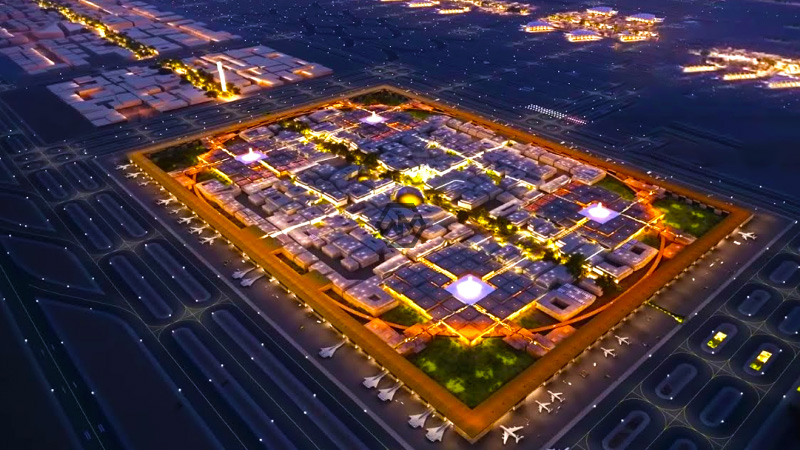- Set to become the world’s largest airport by 2030.
- Integrates eco-friendly features and advanced technologies.
- Part of Saudi Arabia’s Vision 2030 to boost economic and tourism sectors.
The King Salman International Airport in Riyadh, slated to be completed by 2030, represents Saudi Arabia’s ambitious leap into global infrastructure. Spanning 57 square kilometers with six parallel runways, the airport aims to handle over 185 million passengers annually by 2050.
Strategically integrated with the existing King Khaled International Airport, this development underscores Saudi Arabia’s commitment to bridging transport gaps and bolstering economic growth through enhanced connectivity.
Saudi Arabia’s King Salman International Airport: A New Milestone in Global Aviation
Saudi Arabia‘s King Salman International Airport, scheduled for completion by 2030, is poised to redefine global aviation standards. With a staggering budget exceeding USD 29 billion, the airport spans an expansive 57 square kilometers and features state-of-the-art amenities aimed at accommodating over 100 million passengers annually. This landmark project, a centerpiece of Saudi Arabia’s Vision 2030 initiative, aims not only to bolster Riyadh’s position as a key logistics hub but also to enhance the kingdom’s global connectivity.
Designed to integrate sustainability and advanced technology, the airport emphasizes eco-friendly practices such as water and energy conservation. The project’s strategic location and infrastructure expansion are expected to facilitate smoother air travel experiences and stimulate economic growth through increased tourism and business activities. Spearheaded by Foster + Partners and managed by Mace Group, the development underscores Saudi Arabia’s commitment to innovation and infrastructure excellence on a global scale.
In conclusion, the King Salman International Airport represents Saudi Arabia’s ambitious stride towards becoming a global leader in aviation and logistics. With its monumental scale, eco-friendly design, and strategic integration into Vision 2030, the airport not only promises enhanced connectivity but also positions Riyadh as a pivotal hub in the global economy.
“Building the King Salman International Airport is a testament to Saudi Arabia’s commitment to global connectivity and sustainable growth.”



